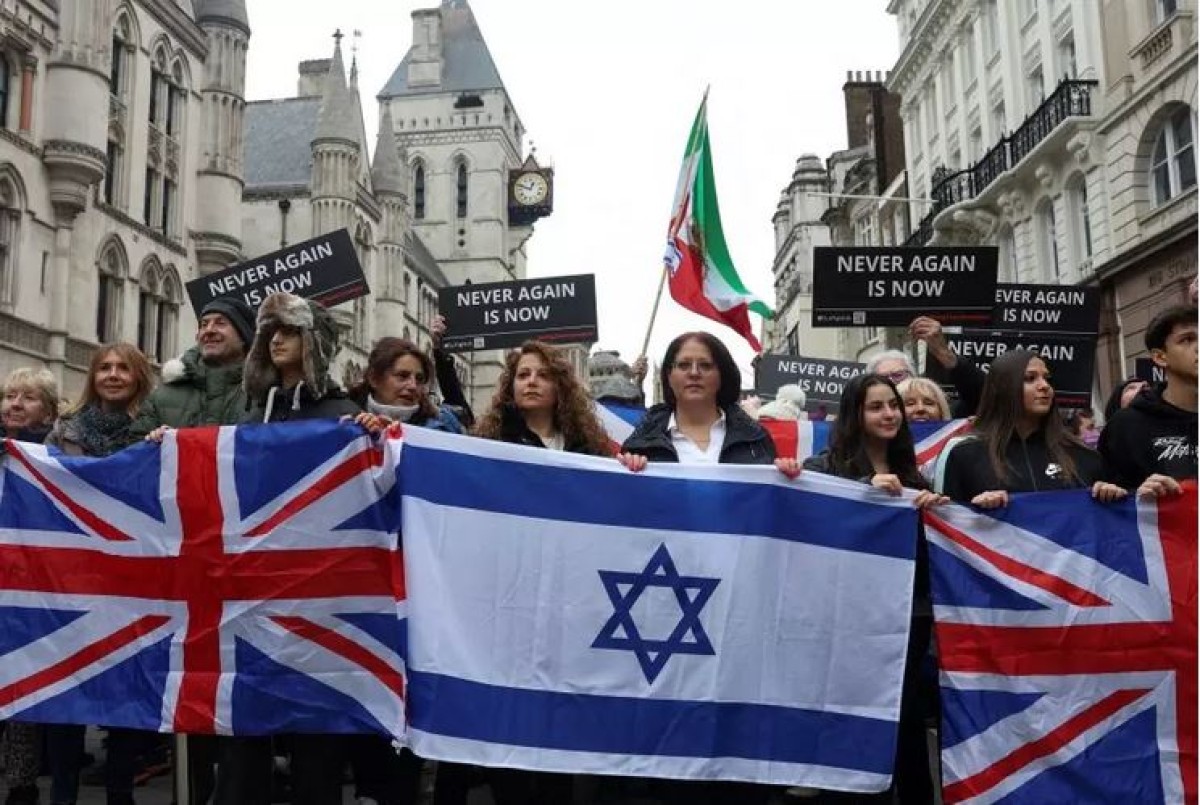 730
730
The UK's Support of Israel: An Exensive Analysis of the Arguments and Reality
The UK's Support of Israel: An Exensive Analysis of the Arguments and Reality
Examining the foreign players supporting either Israel or Hamas has shifted focus as the crisis between them gets more intense. Among these, the position of the United Kingdom has generated a lot of discussion.
Although the UK has long been an ally of Israel, recent claims and investigations cast doubt on the degree and consequences of this assistance, particularly with relation to military operations, intelligence cooperation, and weapon delivery. But what precisely is the UK's involvement in Israel's military activities, and how accurate are these assertions?
Intelligence Exchange and Surveillance Flight Operations
Among the most noteworthy assertions is that Shadow R1 surveillance planes flown by the British Royal Air Force had been off the coastlines of Gaza and Lebanon. These planes allegedly gather thorough intelligence on militant sites and other high-value targets, including activities of Hamas and Hezbollah. Data indicates that since December, about 400 such flights have been carried out, providing essential information for local operations.
Ethical questions have been raised over the intelligence allegedly sent to Israel, especially given this material directly guides military actions. Israel has carried hundreds of strikes aimed at Hamas in Gaza, frequently resulting in civilian losses and claims of possible war crimes. Under international law, both the source and the recipient could possibly be liable if intelligence is given that directly results in civilian damage or Geneva Convention breaches. In the past, the International Criminal Court (ICC) evaluated Israeli acts in Palestinian territory as maybe violating humanitarian laws. This link has sparked questions about possible UK complicity, even if the matter is still complicated and legally unproven.
Military Involvement in Yemen: a Complicated Past and Present
The UK has come under more attack over its involvement in Yemen, where British military engaged in airstrikes aimed at Houthi militants. The British military provided logistical support and carried out actions deemed to have resulted in civilian casualties during the height of the Saudi-led intervention in Yemen. Although these operations have been cut back, reports show that occasionally they still go on; recent airstrikes have apparently caused several civilian casualties.
Many times highlighted as another example of the UK's convoluted military entangements in the Middle East is its engagement. Though the British military role in Yemen has decreased, occasional attacks still call attention to the moral and legal limits of UK overseas operations. The circumstances also highlights the long-standing controversy about arms supplies since the UK has kept arming Saudi Arabia, which drives the coalition in Yemen.
Giving Israel arms: An issue of responsibility
One of Israel's main arms suppliers, the UK's connection with her has grown stronger recently. According to reports, British cargo jets have routinely arrived at Israel's Nevatim Airbase, maybe carrying advanced armaments and missiles. Critics contend that despite certain British politicians' pledges to review arms exports to conflict areas, these shipments simply help to aggravate the already existing conflicts in Gaza.
Especially, a change in policy might be under progress under the new Labour government. Certain top government officials have demanded more responsibility for military support and armaments exports. The government has even declared it would follow an ICC arrest warrant for Israeli Prime Minister Benjamin Netanyahu, a clear reversal from the policy of the previous government that forbade ICC investigations on Israel's activities.
Under Labour's Direction: Changing Dynamics
Britain's position on the Israeli-Palestinian conflict has somewhat changed with the recent election of a Labour government there. The UK is still a supporter of Israel, but Labour officials have shown a more wary attitude stressing respect of international law. Prominent Labour leaders have been vocal about the need of making sure the UK's support complies with human rights standards; some even propose conditional funding depending on Israel's adherence to humanitarian standards.
For example, the government's readiness to arrest Netanyahu should the ICC grant a warrant is a major policy change signifying a more forceful attitude on international responsibility. This is a far cry from the past government, which publicly attacked the ICC's inquiry into possible Israeli war crimes, therefore highlighting the new government's distinct foreign policy perspective.
In essence, negotiating a complex alliance.
Like many worldwide partnerships, the UK's relationship with Israel is complicated. The latest assertions on military operations, weaponry delivery, and intelligence sharing underline the complex part the UK performs in the Middle East. Under the new Labour government, the UK seems to be reassisting its strategy for foreign activities, especially in unstable areas.
Whether these movements result in significant change is ultimately still to be seen. The UK's behavior on the international scene will always be shaped by the harmony among national interest, alliances, and humanitarian obligation. Nonetheless, the cautious stance of the new government and its dedication to respect international law could signal the start of a more balanced UK strategy toward the area one that takes strategic alliances and human rights into account.
 730
730
Comment
Post a comment for this article